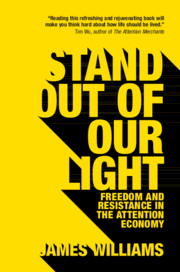The Nine Dots Prize was established to promote innovative thinking on tackling problems facing the modern world. Its name, which comes from the lateral-thinking nine dots puzzle, explains what we were hoping would result – outside-of-the-box methods of approaching and addressing the big issues of the day.
A new question will be posed by the Prize every other year. In 2016, the inaugural year of the Prize, we asked the question ‘Are digital technologies making politics impossible?’
The competition was uniquely exciting in that it was judged anonymously; the Board was tasked with selecting a winner based on their 3,000-word response alone. All we knew about the entrants was that they were committed to developing their ideas into a full-length book, were they to be chosen as the Prize winner. We had no idea whether we were reading the proposal of a teacher, a novelist, a professor, a mechanic, a shop assistant or a lawyer, which meant that new voices and experienced authors would be considered alongside one another and the strongest ideas and ability to express them would win out.
We were thrilled to receive over 700 applications, and even more so post-judging when we discovered that our dreams of casting the net far and wide for fresh thinking had been realised. Entrants came from all four corners of the world, making this a truly international venture, and worked in professions as diverse as engineering, healthcare, media, defence, community activism and business consultancy.
Of these several hundred proposals there were many that the Board felt would make compelling books, but one stood above the rest. We’re delighted to have discovered a new voice in James Williams, a previously unpublished individual who has drawn on his experiences of the tech industry and academia to write this urgent and insightful analysis of the attention economy.
We hope that a lively public debate will follow the publication of Stand Out of Our Light: Freedom and Resistance in the Attention Economy. The issue it addresses is hugely important, and we’re grateful to James for the illumination and attention he has brought to the matter.
We also hope that you agree this is a new and thrilling way of starting such a discussion, and that you continue to follow the Prize as we ask more timely and incisive questions about the issues we are facing in the world today.
For more about the Nine Dots Prize please visit ninedotsprize.org

